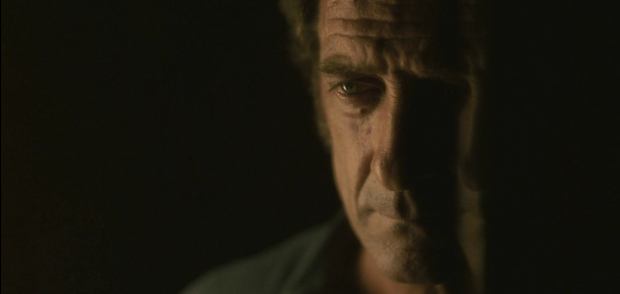
With a seemingly endless amount of streaming options — not only the titles at our disposal, but services themselves — we’re highlighting the noteworthy titles that have recently hit platforms. Check out this week’s selections below and an archive of past round-ups here.
Bastards (Claire Denis)

Modern-to-the-hilt noir submerged in the unforgiving blackness of digital photography, emotional currents sparked with a tactile cinema appealing directly to the senses. In retrospect, it (sometimes) seems these two edges could sufficiently define Claire Denis’s Bastards, but her films can never be boiled down to a few descriptors — which might be a tinge ironic, given the immense power of a narrative system that consists of absolutely no more than each crucial component, like a cinematic razor blade slicing its way through all that’s pure. The crescendo would prove unbearable if the pleasures weren’t so extreme, and Bastards’s final moments are the most viscerally shocking of 2013: just as the final piece is about to snap in, the roving, low-resolution images dart away from an act of savagery — not for the sake of respite, but only as a promise that cycles of violence, corruption, and systematic failure are bound to continue. As Tindersticks carry into the end credits, we’re left with no choice but to embrace the darkness. – Nick N.
Note: Claire Denis’ White Material is also streaming.
Where to Stream: MUBI (free for 30 days)
The Chronicle of Anna Magdalena Bach (Jean-Marie Straub and Danièle Huillet)

One can ask what’s at stake beyond simply their formal rigor. If there’s a second way into Chronicle, or one that inches us closer to “meaning,” then reading the lives of Sebastian and Anna Bach, the married couple at the center of the narrative, as stealth autobiography for Straub and Huillet, is none too difficult. This marriage of distance between two artists initially seems to favor one figure, he being the great famed classical musician, yet her journal (Straub/Huillet’s own dramatic invention), represented by a mix of narration and onscreen text, serves as the ostensible point of view throughout, making us not a direct witness to history in motion, but to a questionable past. – Ethan V. (full review)
Where to Stream: MUBI (free for 30 days)
Cosmos (Andrzej Żuławski)

If there’s any way to synthesize the many pieces that form the bull-in-a-china-shop filmmaking that is Andrzej Żuławski’s Cosmos, an adaptation of Witold Gombrowicz’s novel, consider its status as his first feature in fifteen years. Might some sense of long-awaited release account for its why and how — the intensity of its performances, the force of its camera moves, the sharpness in its cuts, the bombast of its emotions? I’m inclined to think so, but it’s possible I’m only proposing this in search of a “what” — what’s going on, what he was thinking, and what we’re meant to take from any and all of it. Answers, if they do come at all, will only gradually present themselves, and they won’t arrive via exposition or, with some exception, clearly stated themes. A filmmaker who values the power of shock, but not necessarily thrills for thrills’ sake, Żuławski elucidates material with tools that announce themselves in their presentation — surprising camera dollies, fast pans, sudden cuts, overly prominent music cues — and raise complex questions about their relation to one another. – Nick N. (full review)
Where to Stream: MUBI (free for 30 days)
Happy Hour (Ryusuke Hamaguchi)

Ryusuke Hamaguchi’s new film Asako I & II was one of the highlights of New York Film Festival this past fall, a romance unlike any I’ve seen in recent years, with a distinctly unique directorial eye. After watching, I was eager to seek out the Japanese director’s prior film, the five-hour Happy Hour, which got a release in Japan in 2015 and follows the lives of four woman. It’s another lovely, tender, and altogether fascinating piece of work from the director that surprisingly flies by. – Jordan R.
Where to Stream: OVID
In the Shadow of Women (Philippe Garrel)

While fitting snugly in the overall cohesiveness of Philippe Garrel’s filmography, In the Shadow of Women nevertheless feels like a companion piece to its predecessor, the 2013 critical hit Jealousy. Garrel’s latest is also shot in black-and-white, kept within a similarly svelte running time (73 minutes), and its pared-down story of marital infidelity again takes the jealousy intrinsic to adult relationships as its primary theme. In the Shadow of Women revolves around Pierre (Stanislas Merhar) and Manon (Clotilde Courau), a married couple living in a run-down Parisian apartment and struggling along as documentary filmmakers. The strain in their relationship is apparent from the outset and both soon embark on individual affairs. The contrast in their respective motivations – Pierre’s is physical; Manon’s is emotional – and reactions upon learning of the other’s unfaithfulness – Manon is understanding; Pierre is seething – lays bare the asymmetries in their marriage, forcing a confrontation with truths hitherto swept under the carpet. – Giovanni M.C. (full review)
Where to Stream: OVID
Kaili Blues (Bi Gan)

At its heart, Bi Gan’s Kaili Blues is a meditation on the struggle between traditionalism and modernism. Through the story of one man’s journey through Chinese cities — Kaili to Zhenyuan — Bi focuses on characters who lament the people and ideas that they’ve lost as the world’s changed around them. But this is not just another screed against contemporary life; it finds a cruel beauty and gentle soul in the transition between elemental landscapes and the unfinished, industrialized future. And there’s personal serenity for some of these characters in being able to leave behind their old lives. – Michael S. (full review)
Where to Strem: The Criterion Channel (with intro and short film)
The Man Who Killed Don Quixote (Terry Gilliam)

Throughout his career as a director, Terry Gilliam has aimed to portray the outlandish and disorderly in imaginative, transportive ways. His greatest achievements are less about narrative coherence than an emotional attachment to a character’s eccentric journey through various stages of bewilderment. His long-burning passion project The Man Who Killed Don Quixote–finally seeing the light of day some 30 years later–clearly aims to be an epic descent into chaos, but the adventure often has trouble conveying a sense of entertaining spectacle to go along with the frivolous bafflement. – Jordan R. (full review)
Where to Stream: Amazon, iTunes
Mid90s (Jonah Hill)

The summer between middle school and high school is a formative one for any kid. There’s this sense of moving away from childhood and towards young adulthood — of needing to act older to fit in considering the pecking order has restarted with you down at the bottom. Factor in a sibling who’s already gone through this transition (living to remind you of this fact with his penchant for brutal abuse you’re too naïve to realize is his own insecurity seeking an easy target to work out aggression) and your desire to evolve becomes that much more potent. Now is the time to be cool. Throw away those TMNT bed sheets and reinvent yourself as a skateboarder despite knowing nothing about how to begin riding. Image proves everything. This is the point in which first-time feature film director Jonah Hill introduces his thirteen-year-old lead Stevie (Sunny Suljic). – Jared M. (full review)
Where to Stream: Amazon Prime
The Virgin Suicides (Sofia Coppola)

Sofia Coppola’s eerie adaptation of Jeffrey Eugenides’ novel, The Virgin Suicides occupies a mournful and nostalgic space. The narrative follows the lovely Lisbon sisters after the attempted suicide of the youngest sister, Cecilia. The horny neighborhood boys hardly require any further motivation to obsess on these girls, all seemingly spun from delicate blonde hair and ivory skin, but her suicide attempt seals it. Ed Lachman’s visuals paint the small Michigan town of the ’70s like a watercolor masterwork, the sunlight catching the sister’s hair in a nearly magical fashion. Why did they commit this irreversible act? After the suicides, Lachman bathes the film in a sickly green pallor, as if the absence of these girls has drained all the color from the world. Lachman’s camera finds small details which seem to suggest a reason behind their deaths, but nothing is ever conclusive. There will never be an explanation, and thus the emotional power of The Virgin Suicides grows with each subsequent viewing. – Tony H.
Where to Stream: The Criterion Channel
Also New to Streaming
Amazon
The Lego Movie 2: The Second Part (review)
Miss Bala
Perfectos Desconocidos (review)
HBO Go
MUBI (free for 30 days)
The Flowers of War
Human
Love Education
Netflix
About Time
Homecoming
Jonathan (review)
The New Romantic (review)

